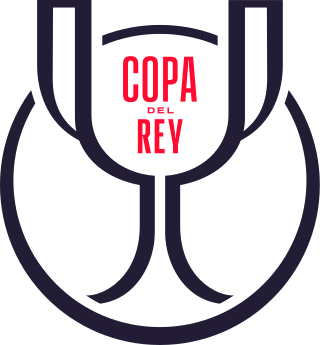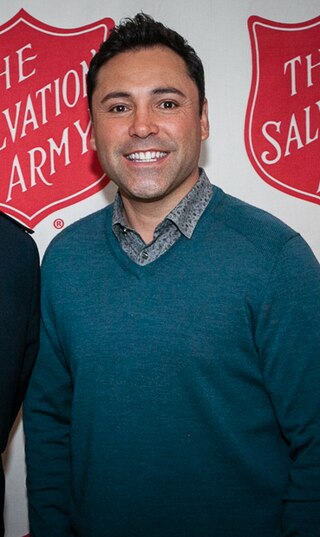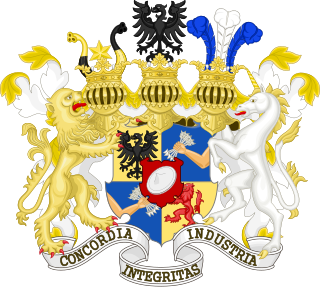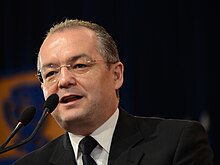
Andalusia is the southernmost autonomous community in Peninsular Spain, located in the south of the Iberian Peninsula, in southwestern Europe. It is the most populous and the second-largest autonomous community in the country. It is officially recognised as a historical nationality and a national reality. The territory is divided into eight provinces: Almería, Cádiz, Córdoba, Granada, Huelva, Jaén, Málaga, and Seville. Its capital city is Seville, while the seat of the its High Court of Justice is the city of Granada.

Colombia, officially the Republic of Colombia, is a country primarily located in South America with insular regions in North America. The Colombian mainland is bordered by the Caribbean Sea to the north, Venezuela to the east and northeast, Brazil to the southeast, Ecuador and Peru to the south and southwest, the Pacific Ocean to the west, and Panama to the northwest. Colombia is divided into 32 departments. The Capital District of Bogotá is also the country's largest city hosting the main financial and cultural hub. Other major urban areas include Medellín, Cali, Barranquilla, Cartagena, Santa Marta, Cúcuta, Ibagué, Villavicencio and Bucaramanga. It covers an area of 1,141,748 square kilometers and has a population of around 52 million. Its rich cultural heritage—including language, religion, cuisine, and art—reflects its history as a colony, fusing cultural elements brought by immigration from Europe and the Middle East, with those brought by the African diaspora, as well as with those of the various Indigenous civilizations that predate colonization. Spanish is the official language, although Creole, English and 64 other languages are recognized regionally.

The Canary Islands, also known informally as the Canaries, are a Spanish region, autonomous community and archipelago in the Atlantic Ocean. At their closest point to the African mainland, they are 100 kilometres west of Morocco and the Western Sahara. They are the southernmost of the autonomous communities of Spain. The islands have a population of 2.2 million people and are the most populous special territory of the European Union.

Mexico City is the capital and largest city of Mexico, and the most populous city in North America. It is one of the most important cultural and financial centers in the world. Mexico City is located in the Valley of Mexico within the high Mexican central plateau, at an altitude of 2,240 meters (7,350 ft). The city has 16 boroughs or demarcaciones territoriales, which are in turn divided into neighborhoods or colonias.

Rio de Janeiro, or simply Rio, is the capital of the state of Rio de Janeiro. It is the second-most-populous city in Brazil and the sixth-most-populous city in the Americas.

Seville is the capital and largest city of the Spanish autonomous community of Andalusia and the province of Seville. It is situated on the lower reaches of the River Guadalquivir, in the southwest of the Iberian Peninsula.
De facto describes practices that exist in reality, regardless of whether they are officially recognized by laws or other formal norms. It is commonly used to refer to what happens in practice, in contrast with de jure.

The House of Bourbon is a dynasty that originated in the Kingdom of France as a branch of the Capetian dynasty, the royal House of France. Bourbon kings first ruled France and Navarre in the 16th century. A branch descended from the French Bourbons came to rule Spain in the 18th century and is the current Spanish royal family. Further branches, descended from the Spanish Bourbons, held thrones in Naples, Sicily, and Parma. Today, Spain and Luxembourg have monarchs of the House of Bourbon. The royal Bourbons originated in 1272, when Robert, the youngest son of King Louis IX of France, married the heiress of the lordship of Bourbon. The house continued for three centuries as a cadet branch, serving as nobles under the direct Capetian and Valois kings.

Charles André Joseph Marie de Gaulle was a French military officer and statesman who led the Free French Forces against Nazi Germany in World War II and chaired the Provisional Government of the French Republic from 1944 to 1946 to restore democracy in France. In 1958, amid the Algerian War, he came out of retirement when appointed Prime Minister by President René Coty. He rewrote the Constitution of France and founded the Fifth Republic after approval by referendum. He was elected President of France later that year, a position he held until his resignation in 1969.

Valencia is the capital of the province and autonomous community of the same name in Spain. It is the third-most populated municipality in the country, with 807,693 inhabitants within commune, 1,582,387 inhabitants within the urban area and 2,522,383 inhabitants within the metropolitan region. It is located on the banks of the Turia, on the east coast of the Iberian Peninsula on the Mediterranean Sea.

The Campeonato de España–Copa de Su Majestad el Rey, commonly known as Copa del Rey, La Copa or the Spanish Cup, or Cup of the King, and formerly known as Copa del Presidente de la República (1932–36) and Copa del Generalísimo (1939–76), is an annual knockout football competition in Spanish football, organized by the Royal Spanish Football Federation.

Oscar De La Hoya is an American boxing promoter and former professional boxer who competed from 1992 to 2008. His accolades include winning 11 world titles in six weight classes, including lineal championships in three weight classes. De La Hoya was nicknamed "The Golden Boy of boxing" by the media when he represented the United States at the 1992 Summer Olympics where, shortly after having graduated from James A. Garfield High School, he won a gold medal in the lightweight division, and reportedly "set a sport back on its feet."

Daniel Michael DeVito Jr. is an American actor and filmmaker. He gained prominence for his portrayal of the taxi dispatcher Louie De Palma in the television series Taxi (1978–1983), which won him a Golden Globe Award and an Emmy Award. He plays Frank Reynolds on the FXX sitcom It's Always Sunny in Philadelphia (2005–present).

Pablo Emilio Escobar Gaviria was a Colombian drug lord, narcoterrorist, and politician who was the founder and sole leader of the Medellín Cartel. Dubbed "the king of cocaine", Escobar was one of the wealthiest criminals in history, having amassed an estimated net worth of US$30 billion by the time of his death—equivalent to $70 billion as of 2022—while his drug cartel monopolized the cocaine trade into the United States in the 1980s and early 1990s.

The Rothschild family is a wealthy Ashkenazi Jewish noble banking family originally from Frankfurt. The family's documented history starts in 16th century Frankfurt; its name is derived from the family house, Rothschild, built by Isaak Elchanan Bacharach in Frankfurt in 1567. The family rose to prominence with Mayer Amschel Rothschild (1744–1812), a court factor to the German Landgraves of Hesse-Kassel in the Free City of Frankfurt, Holy Roman Empire, who established his banking business in the 1760s. Unlike most previous court factors, Rothschild managed to bequeath his wealth and established an international banking family through his five sons, who established businesses in Paris, Frankfurt, London, Vienna, and Naples. The family was elevated to noble rank in the Holy Roman Empire and the United Kingdom.

Buenos Aires is the capital city of Argentina, on the western shore of the Río de la Plata on South America's southeastern coast. "Buenos aires" is Spanish for "fair winds" or "good airs". Buenos Aires is classified as an Alpha global city, according to the Globalization and World Cities Research Network (GaWC) 2020 ranking.

Ellen Lee DeGeneres is an American comedian, actress, television host, writer, and producer. She starred in the television sitcoms Ellen (1994–1998) and The Ellen Show (2001–2002). She also hosted the syndicated television talk show, The Ellen DeGeneres Show (2003–2022), for which she received 33 Daytime Emmy Awards.

Robert Anthony De Niro is an American actor and film producer. He is considered to be one of the greatest and most influential actors of his generation. De Niro is the recipient of various accolades, including two Academy Awards, a Golden Globe Award, the Cecil B. DeMille Award, and a Screen Actors Guild Life Achievement Award. He received the Kennedy Center Honors in 2009, and the Presidential Medal of Freedom from U.S. President Barack Obama in 2016.

Ronald Dion DeSantis is an American politician serving since 2019 as the 46th governor of Florida. A member of the Republican Party, he served as the U.S. Representative from Florida's 6th congressional district from 2013 to 2018. DeSantis was a candidate for the 2024 Republican presidential nomination, withdrawing his candidacy in January 2024.

Madrid is the capital and most populous municipality of Spain. It has almost 3.4 million inhabitants and a metropolitan area population of approximately 7 million. It is the second-largest city in the European Union (EU), and its monocentric metropolitan area is the second-largest in the EU. The municipality covers 604.3 km2 (233.3 sq mi) geographical area. Madrid lies on the River Manzanares in the central part of the Iberian Peninsula at about 650 meters above mean sea level. The capital city of both Spain and the surrounding autonomous community of Madrid, it is also the political, economic, and cultural centre of the country. The climate of Madrid features hot summers and cool winters. The primitive core of Madrid, a walled military outpost, dates back to the late 9th century, under the Emirate of Córdoba. Conquered by Christians in 1083 or 1085, it consolidated in the Late Middle Ages as a sizeable town of the Crown of Castile. The development of Madrid as administrative centre fostered after 1561, as it became the permanent seat of the court of the Hispanic Monarchy.



















